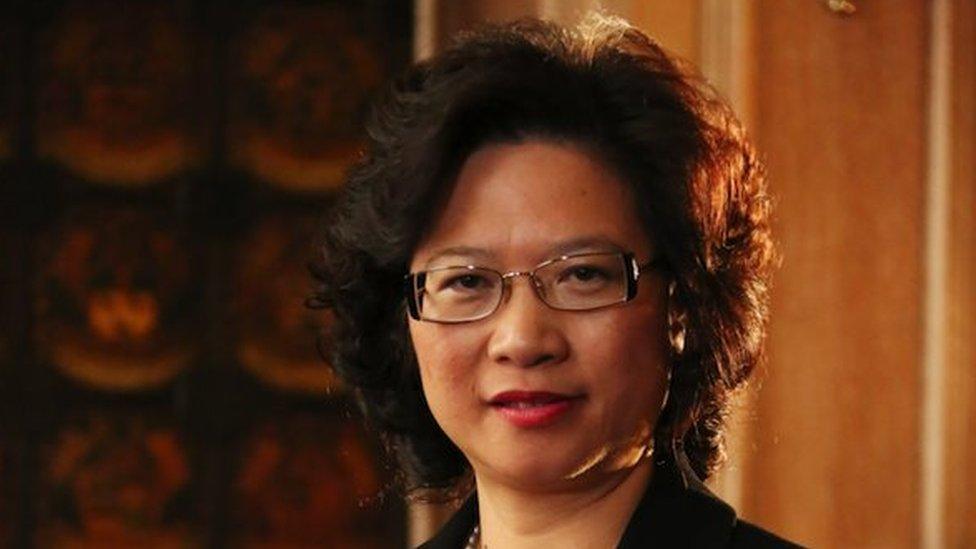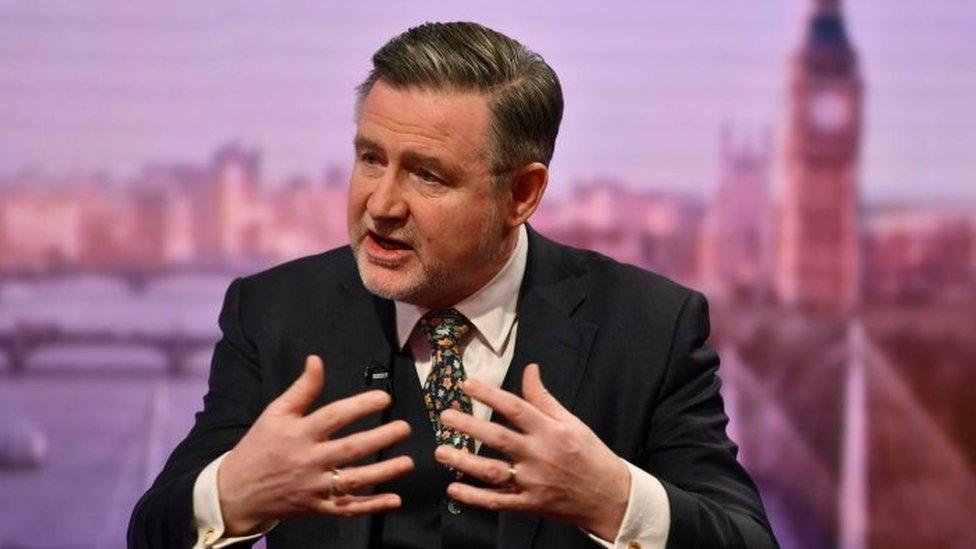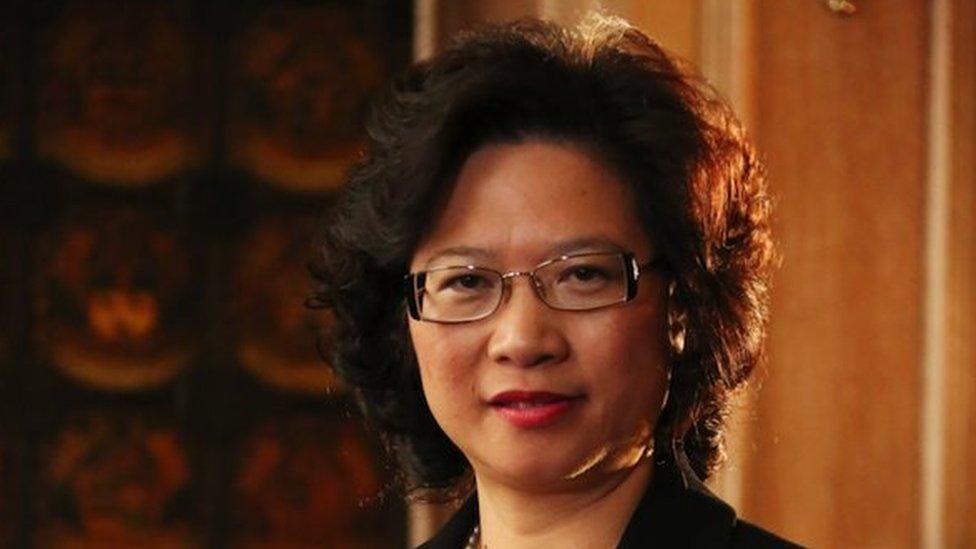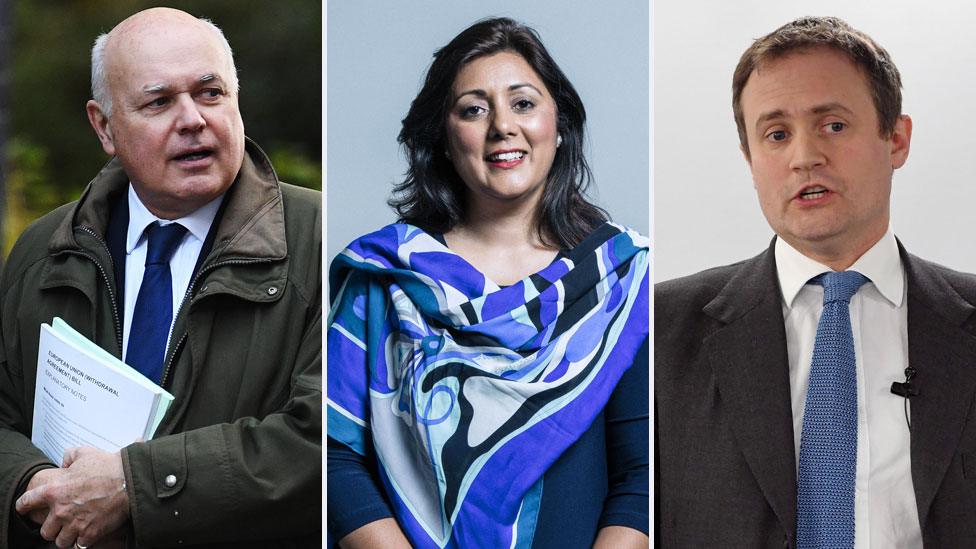More MI5 alerts to come to counter foreign interference
- Published

MI5 issued an alert about Christine Lee on Thursday
The shockwaves are still being felt from MI5's interference alert to Parliament last week but the signs are it will not be the last.
MI5 said Christine Lee, a well known lawyer in the UK Chinese community, was working covertly on behalf of the Chinese Communist Party to further its interests.
Ms Lee is not accused of being engaged in espionage - stealing secrets - but interference.
Ministers and officials say that there will be more alerts in the future as the security services seek to disrupt those covertly influencing public life.
But there are questions about whether enough has been done to counter foreign interference and why new laws have yet to be passed.
Whitehall sources say the decision to issue the alert was taken months ago and after a long running investigation. The view was that the only way to disrupt the threat was to effectively go public, issuing a warning to Parliament that everyone knew would immediately gain huge publicity - only the second time this has been done.
And future alerts may be issued even beyond Parliament to reflect the fact this is not the only area of public life believed to be at risk.
Christine Lee is not being prosecuted and has not yet responded to the allegations.
The alert alleged that she had facilitated donations designed to look as if they came from within the UK but actually came from China and Hong Kong.
Labour MP Barry Gardiner received more than £400,000 of funding for his office over five years and looks to have been the largest recipient of money - although the effort to gain influence is alleged to have crossed party lines.
He told Parliament the issuing of the alert was not based on the donations to his office, which stopped in 2020, raising the question of whether it was new funding to others that generated the concern. It is notable the warning refers to aspiring as well as existing parliamentarians, and the accusation seems to be that the Chinese Communist Party may have been trying to cultivate a new set of politicians.

Labour MP Barry Gardiner received donations from Christine Lee's company
Speaking in Parliament on Monday, Home Secretary Priti Patel denied the government had been complacent about the threat of foreign influence. But there have been questions about whether enough has been done on the issue.
The Russia Report of July 2020 highlighted concerns over Moscow's interference in public life. It criticised the security services and politicians for not doing enough to counter the issue.
One problem is that the security services are nervous of getting too involved in politics. Even though Parliament has long been a target for espionage (and some past MPs have even been spies themselves), MI5 has been cautious about being drawn into being used as a tool to target political opponents. Some inside feared this was happening in the 1980s when the Conservative government pushed it to investigate alleged foreign backing for striking miners and peace campaigners.
But events such as Russian trolls intervening in the US 2016 election forced the issue of interference back up the national security agenda. And in recent years, China has also risen up that agenda with concerns it is using its economic power - often with the offer of business deals or money - to secure influence.
The worry is that states like Russia and China are not just openly lobbying in the way many other states operate, but using covert techniques to influence politics in their favour. This might mean deploying undercover agents, providing funding or creating dependency through business deals to do things like soften foreign policy, approve business takeovers or investments decisions, or prevent criticism on human rights.
But a challenge has been that even when foreign interference is uncovered, it is not always breaking existing laws. That is why there has been growing pressure to close down loopholes and introduce new powers. One that has been looked at is a foreign agent registration act - the US has a law which allows individuals to be prosecuted if they have failed to register that they are working on behalf of another country.
The British government consulted on new powers to "counter hostile state activity" last year which are designed to offer new tools. But they have still not yet come before Parliament.
There are also calls to do more to clamp down on political donations - for instance those through shell companies which might be used to mask foreign cash.
The government is now promising action on many of these areas but there is still no timetable for those new powers and in the meantime, the security services may well feel the only option they have to disrupt foreign interference is to issue more alerts.
Related topics
- Published14 January 2022

- Published13 January 2022

- Published26 March 2021

